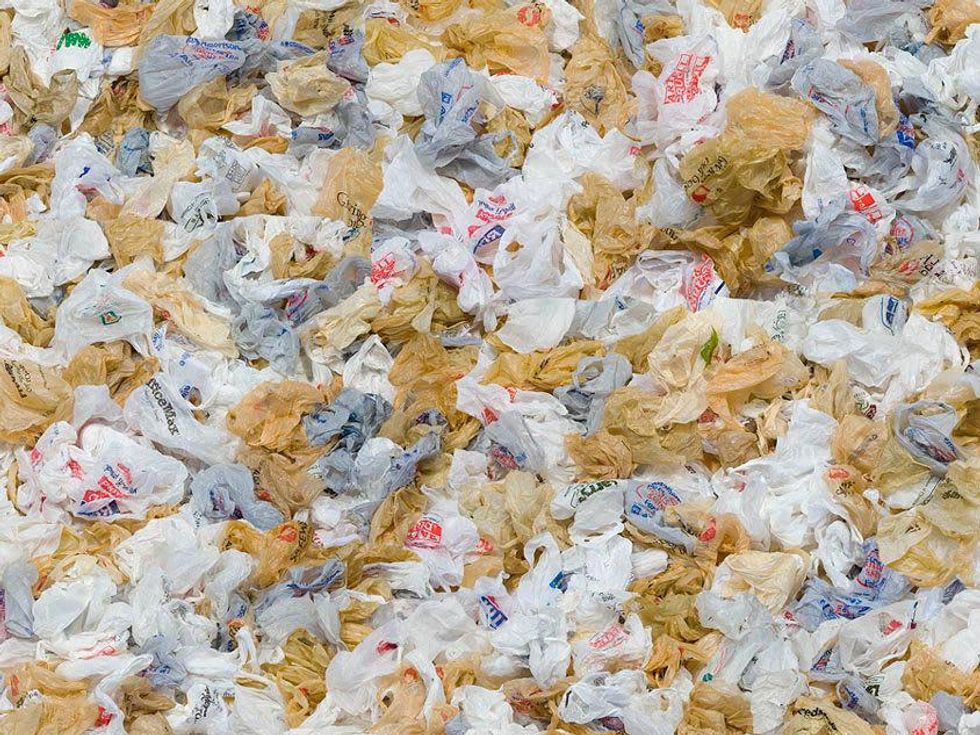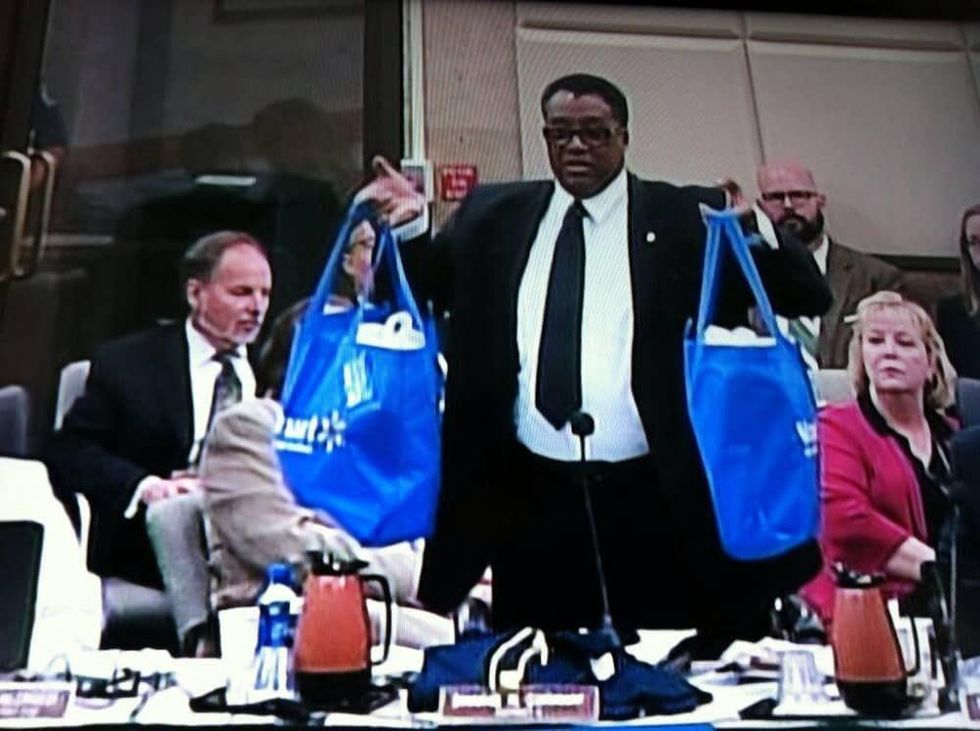Plastic Bag Banter
Dallas City Council gets ready to vote on plastic bag ban
Dallas could become the next Texas city to regulate single-use plastic bags. On Wednesday, March 26, the City Council will vote on an ordinance that would ban single-use carryout bags at city facilities and impose a fee on such bags at businesses.
A Dallas plastic bag ban has been debated since 2008, but council member Dwaine Caraway gave the issue a boost in June 2013 at a meeting of the city's Quality of Life Committee. Caraway's actions have resulted in a fresh ordinance that comes at no cost to the city.
Customer fees for plastic bags will range from 10 cents per bag to $1 per transaction, and business will be allowed to pocket up to 50 percent of the proceeds.
In addition to imposing a fee for customers opting to use plastic bags, the ordinance establishes requirements for reusable bags and makes businesses explain the program via signage. Customer fees for bags will range from 10 cents per bag to $1 per transaction, and business will be allowed to pocket up to 50 percent of the proceeds; the other 50 percent will go to the city.
"The improper disposal of single-use carryout bags has a negative impact on the environment by contributing to unsightly ugliness on the streets, sidewalks, trees, bushes, and vacant lots that is detrimental to the quality of life of residents, the property values of homeowners, and the tourism industry," the ordinance reads. "Single-use carryout bags have significant environmental impacts each year, requiring hundreds of volunteer hours to remove single-use carryout bags from trees, lots, bushes, and roadways."
Of course, not everyone is happy with the proposed parameters of the so-called bag ban. In addition to opposition from the plastic industry and many grocery store chains, the ordinance isn't entirely pleasing to environmentalists.
Zac Trahan with the Texas Campaign for the Environment worries the financial incentive could actually cause stores to push more bags. "Retailers should be encouraged and incentivized to stop distributing single-use bags," he says. "That's the whole point."
To offset administrative costs associated with the new bag policy, Trahan suggests stores keep only 10 percent of the profits. He also wants all businesses to have a bag-reduction goal measured by monthly reports. "If a particular retailer does not meet the goal, then it will not be allowed to keep using disposable bags and fees," Trahan says.
In the seven Texas cities that already have a bag-ban ordinance, customers are responsible for purchasing reusable bags or paying to use plastic ones. Brownsville's 2011 ordinance has brought in $1.4 million in revenue through a $1 flat fee for plastic bags.


